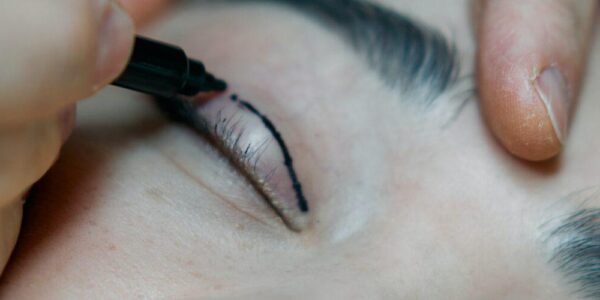
Will Eyelid Surgery Worsen My Dry Eye?
Environmental factors, certain medications, wearing makeup, hormonal changes and increased digital screen time can all make dry eye symptoms worse. Dry eye is when the eye does not produce enough tears to adequately lubricate and moisturize the eyes. Dry eyes also occur when the eyes do not produce the right type of tears or tear film. The purpose of the tear film is to protect the eye from the environment, to seal in the oil, water, and mucous layers of the eye, and to reduce the evaporation of tears.
If you already suffer from chronic dry eyes, you will need to keep in mind potential side effects of cosmetic treatments near the eyes. The most common cosmetic surgery for rejuvenating the eyes is blepharoplasty, more commonly known as eyelid surgery. Benefits of blepharoplasty include removal of excess skin along the eyelids, tightening of loose skin and muscles, elimination of fat deposits over the eyes, lofting of droopy, crepey skin to improve vision, a more youthful appearance, improved eye shape, a more rested and alert look to the eyes and a boost to self-confidence. But for those who experience dry eyes, are they an eligible candidate for blepharoplasty? At David W. Allison, MD, patients will ask “will eyelid surgery worsen my dry eye?”
Patients with dry eye can undergo a blepharoplasty; however, surgery is known to cause postoperative dry eye or worsen preoperative dry eye. Sometimes dry eye is just a temporary effect of blepharoplasty during the healing process as the blink rate is lowered during recovery. The other side effect to consider in addition to the blink rate is lower tear production. When the tissue surrounding the eyelids is inflamed due to swelling and bruising post-surgery, the tear glands and ducts may become compromised, resulting in fewer tears produced. And we know that dry eye occurs when tears are lacking or insufficient. Patients who suffer from dry eye pre-surgery may further damage tear ducts with a blepharoplasty. For this reason, it is imperative to find a board-certified facial cosmetic surgeon that will create a customized approach to ensure minimal trauma to the eye area to avoid worsening your dry eye symptoms. Your surgeon should provide you with a clear strategy during your evaluation and surgery to preserve the function of the lacrimal gland to properly manage dry eyes.
To request an appointment with David W. Allison, MD, call us today at 703-754-8228 or fill out a submission form at WEBSITE. Our team will discuss the benefits as well as the potential risks of eyelid surgery. After a detailed screening process and evaluation, our surgeons will offer you treatment solutions including a blepharoplasty or alternative options such as Botox or laser treatment.
